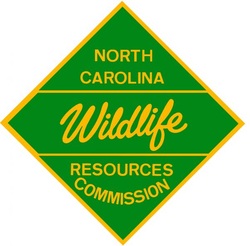Need to Know Trip Info

What should I bring with me for the guided trip?
We provide fishing tackle and waders. If you own a fly rod and reel (an 8’ to 9’, 4 or 5 weight rod with matching reel and floating line is typical for the area) or waders (which may fit you better than those we provide), we encourage you to bring those along.
Items you will want to bring with you:
Dark or earth tone colors are best to wear because trout spook easily - even just seeing bright colors might send them swimming away from you. Layering is always a good idea for outdoor activities. Temperatures can vary in the mountains; it may be 40 degrees in the morning and 75 or 80 in the afternoon. A hat and polarized sunglasses will help eliminate glare and better enable you to see the fish. Rain gear is recommended. A dry change of clothes may come in handy as well.
What is included in the guide trip?
Whenever you can fish.
If your plans can be flexible, early spring and late fall are two favorite times of year because insect hatches are prevalent during these times. That translates into dry fly, or top water action - meaning you can see the fish rise up and latch onto your fly.
If you can handle cold, winter offers some great opportunities for big fish. Remember, the Norwegians’ have a saying, “there’s no such thing as bad weather, only bad clothes.” Float trips on the Tuckasegee River during winter months cover a lot of water and is also a time when there are not many people fishing. Some of our largest fish have been caught during a light winter snow (on a float trip or while wading).
Summer provides excellent fishing as well, especially in some of the smaller streams.
What kind of fish might I catch?
Depending on where you fish: rainbow trout, brown trout, brook trout, and in higher elevations and smaller water, you may be fortunate enough to catch the local “speckled” trout. The Tuckasegee River offers you a good chance to catch the grand slam: a rainbow, brook, and brown all in the same day!
The local waters also can give you a chance at catching a small mouth bass.
Do I need a fishing license?
Yes, you will need a valid North Carolina fishing license and a trout stamp (available locally).
We provide fishing tackle and waders. If you own a fly rod and reel (an 8’ to 9’, 4 or 5 weight rod with matching reel and floating line is typical for the area) or waders (which may fit you better than those we provide), we encourage you to bring those along.
Items you will want to bring with you:
- Sunglasses (polarized are best)
- Cap or hat
- Sunscreen
- A change of clothes (in case you find a slippery rock in the river)
- Rain gear
- Layered clothing (check the weather forecast)
- A valid North Carolina fishing license and trout stamp.
Dark or earth tone colors are best to wear because trout spook easily - even just seeing bright colors might send them swimming away from you. Layering is always a good idea for outdoor activities. Temperatures can vary in the mountains; it may be 40 degrees in the morning and 75 or 80 in the afternoon. A hat and polarized sunglasses will help eliminate glare and better enable you to see the fish. Rain gear is recommended. A dry change of clothes may come in handy as well.
What is included in the guide trip?
- Terminal tackle (tippet and flies)
- Waders (if needed)
- Full instruction (i.e., casting, fly selection, water reading, etc.) tailored to your needs
- Transportation (if needed)
- Food - we provide lunch for full day trips as well as snacks and beverages for all trips
- Digital photos will be taken and posted to Facebook
Whenever you can fish.
If your plans can be flexible, early spring and late fall are two favorite times of year because insect hatches are prevalent during these times. That translates into dry fly, or top water action - meaning you can see the fish rise up and latch onto your fly.
If you can handle cold, winter offers some great opportunities for big fish. Remember, the Norwegians’ have a saying, “there’s no such thing as bad weather, only bad clothes.” Float trips on the Tuckasegee River during winter months cover a lot of water and is also a time when there are not many people fishing. Some of our largest fish have been caught during a light winter snow (on a float trip or while wading).
Summer provides excellent fishing as well, especially in some of the smaller streams.
What kind of fish might I catch?
Depending on where you fish: rainbow trout, brown trout, brook trout, and in higher elevations and smaller water, you may be fortunate enough to catch the local “speckled” trout. The Tuckasegee River offers you a good chance to catch the grand slam: a rainbow, brook, and brown all in the same day!
The local waters also can give you a chance at catching a small mouth bass.
Do I need a fishing license?
Yes, you will need a valid North Carolina fishing license and a trout stamp (available locally).
Click the images below for more info about our guided fly fishing trips.


